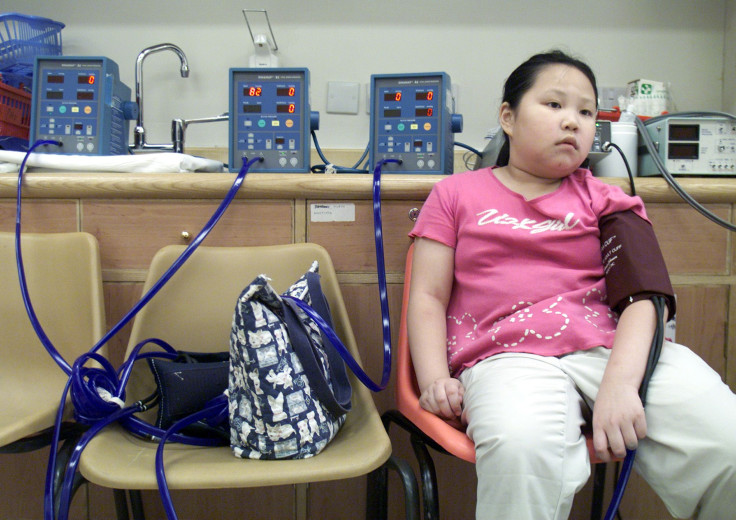Antibiotics Result In Weight Gain For Children, But Let's Not Get Crazy… Kids Still Need Them

When penicillin was being developed, scientists learned early on that its byproducts caused weight gain in animals, which is why industrial farmers currently add small amounts to daily animal feed to fatten up livestock. What about humans? A recent study conducted by researchers from the Johns Hopkins University Bloomberg School of Public Health has found that children who are prescribed antibiotics early in life experience weight gain as they get older.
"Your BMI may be forever altered by the antibiotics you take as a child," said Dr. Brian S. Schwartz, a professor in the Department of Environmental Health Sciences at the Bloomberg School, in a statement. "Our data suggest that every time we give an antibiotic to kids, they gain weight faster over time."
Schwartz and his colleagues used Geisinger Health System's electronic health records, which included information on 163,820 children between the ages of 3 and 18 from Jan. 2001 to Feb. 2012, to collect data. Body weight and height was used to calculate body mass index (BMI), and antibiotic use in the past year was recorded. Around 21 percent of the children had received seven or more prescriptions throughout their childhood.
Researchers found children who were prescribed seven or more antibiotics during their childhood were, on average, three pounds more by the age of 15 compared to kids with no prescriptions. Although similar studies suggest antibiotic use leads to weight gain in very young children, this new study shows that use during any childhood age can accelerate weigh gain as they get older.
"While the magnitude of the weight increase attributable to antibiotics may be modest by the end of childhood, our finding that the effects are cumulative raises the possibility that these effects continue and are compounded into adulthood," Schwartz added.
The link between antibiotics and weight gain comes down to the effect they have on microbiota — the microorganisms found in the human body. While most antibiotics are successful in destroying harmful bacteria, they also kill good bacteria essential to our gastrointestinal health. With repeated antibiotic use, research has shown that its byproducts can have such a drastic effect on microbiota that it forever alters the way it breaks down food and increases the calories of nutrients we absorb.
"Systematic antibiotics should be avoided except when strongly indicated," Schwartz explained. "From everything we are learning, it is more important than ever for physicians to be the gatekeepers and keep their young patients from getting drugs that not only won't help them but may hurt them in the long run."
Parents today are often criticized for promoting excessive antibiotic use for apparent cold viruses and other minor ailments that would not be helped by them. Antibiotic overuse has also led to harmful bacteria becoming more drug-resistant and harder to treat. A recent study even suggested 10 million people a year will die by 2050 as a result of antibiotic resistance. For any parents looking to determine when antibiotics are necessary, they should only be used to treat bacterial infections as opposed to viral ones.
Source: Bailey-Davis L, Pollak J, Schwartz B, et al. Antibiotic use and childhood body mass index trajectory. International Journal of Obesity. 2015.



























